
 Flash News
Flash News
Giro D'Italia starts today, here are the road axes that will be blocked in Tirana from 13:00-18:00
Who is the new Pope?
Pope Leo XIV greets the faithful for the first time in St. Peter's Square
"Freedom works", DP welcomes the US position
Reuters: Rama seeks fourth term in elections dominated by corruption and criminal gangs
EU Study: Albania, the most unprepared in the Region for technology transfer

Technology transfer is a mechanism for innovation and is therefore strongly encouraged by innovation policy.
A study by the European Training Fund, an EU mechanism, notes that the countries of the Western Balkans have adopted the Smart Specialization Strategy (S3), which channels RDI (Research and Innovation Development) funding to priority sectors, but Albania and Kosovo are weaker than other countries and are not yet ready to apply VTT (Vertical Transfer of Technology).
The study notes that Montenegro and Serbia are the only countries in the Western Balkans that have adopted the S3 strategy, North Macedonia was expected to adopt its S3 by the end of 2022, indicating a high level of preparedness.
Kosovo and Albania are both in the early stages of S3 development, while Bosnia and Herzegovina has not yet initiated its S3 process.
Existing policies in Albania support the development of a "quad helix" innovation model to support VTT (Vertical Technology Transfer), but this has not been reflected in policy implementation, says the EU study.
The Research Programs (RPK) and the National Development Strategy (NDS) are documents needed for funding vary widely across the Balkans, with only Serbia and North Macedonia establishing functional innovation funds, while Montenegro is planning this step. while Albania, Bosnia and Kosovo still lack adequate support for technology activities. Venture capital is at an early stage of development across the region.
The study reported that all Balkan countries have very low investments in Research and Development (from 0.25% of GDP in Albania to 0.9% in Serbia). This is reflected in their research capacity, including the number of researchers, scientific publications and patenting activity.
Serbia is seeing the most consistent improvement as a result of channeling EU funds into Research and Development. Meanwhile, the Global Innovation Index (GII) shows that Albania has the lowest performance in the region in the dimension of human capital and research. Patenting activity is low and mostly carried out by companies.
Bosnia and Herzegovina also ranks at the lower end of the regional spectrum for science and research capacity. The country is ranked and scored low for R&D production.
Kosovo is seeing a negative trend. The University of Pristina used to be able to compete with other similar institutions in the region, but today it has fallen behind in the global and regional rankings, although it is still above the University of Tirana.
Montenegro has a small population of researchers and very few researchers working in the business sector. However, the relatively good level of research excellence in academic publications has been recognized and is the result of strict long-term university policies for academic advancement.
The number of researchers in North Macedonia is also well below the EU average and research results are also low. Serbia, like Montenegro, breaks the regional trend in terms of scientific capacity, with improved output in the last decade.
/Monitor/
Latest news



Bars can't hold back anymore, start increasing coffee prices, 4.7% more in April
2025-05-09 07:46:49

Horoscope, what do the stars have in store for you today?
2025-05-09 07:22:06
Unstable weather, afternoon brings rain
2025-05-09 07:01:29
Morning Post/ In 2 lines: What mattered yesterday in Albania
2025-05-09 06:45:46

How did LaCivita change the DP campaign? Berisha: He studied the opponent
2025-05-08 22:49:51

David defeats Goliath
2025-05-08 22:15:50

Journalist: There are SPAK infiltrators in party headquarters
2025-05-08 21:55:15
Who is the new Pope?
2025-05-08 21:48:13
Berisha finally reveals when he will retire from politics
2025-05-08 21:33:46


LaCivita in Lezha: Albanians will fire Edi Rama from his job
2025-05-08 21:11:20


Berisha: LaCivita chose us because he believes in Reagan's program
2025-05-08 20:48:40
He rejected America to serve Pogradec, Genti Çela tells about life in "Elevate"
2025-05-08 20:26:28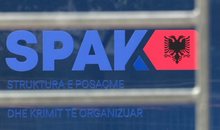




Pope Leo XIV greets the faithful for the first time in St. Peter's Square
2025-05-08 19:29:33




Photo session with LaCivitta in Tirana: For Great Albania
2025-05-08 18:40:18
Source: DASH decision a personal victory for Berisha
2025-05-08 18:30:10
Take off those crazy glasses and see where you've taken him?
2025-05-08 18:02:47
LDK files criminal charges against members of the incumbent Government
2025-05-08 18:02:00

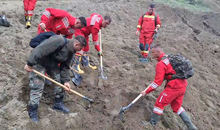





BIRN analysis: Tirana, the determining district for the future majority
2025-05-08 16:04:03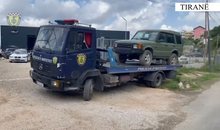




Chris LaCivita's contract with the DP, Berisha: 100% correct and clean
2025-05-08 15:11:11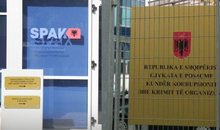
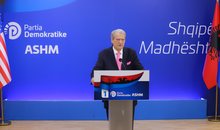
"These are the peak days", Berisha reveals when he will travel to the USA
2025-05-08 14:45:25


Endless boxes with filled-in ballots, DP demands separation of votes from Greece
2025-05-08 14:11:12


Photo/ Who are the 3 associates of Talo Çela arrested in Dubai?
2025-05-08 13:37:09

Hetimi për krimet zgjedhore, Altin Dumani zbarkon në Prokurorinë e Shkodrës
2025-05-08 13:06:21
DASH paves the way for Berisha, Alizoti: Great news on the eve of Great Albania!
2025-05-08 13:03:48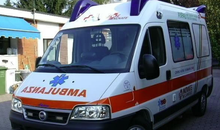
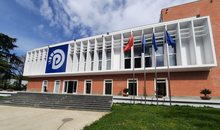
"Freedom works", DP welcomes the US position
2025-05-08 12:48:07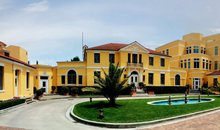

Black smoke rises from the Sistine Chapel, the Vatican still without a Pope
2025-05-08 12:26:18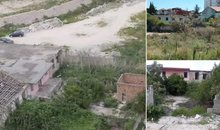





Davide Pecorrelli extradited to Albania
2025-05-08 11:29:04
'May 11, Albania will react', Xhaferri: Electoral criminals will pay
2025-05-08 11:21:46

Gjin Gjoni: Non Grata fell, Rama should get ready to go to McGonigal
2025-05-08 11:01:54
May 8th deadline for immigrants to vote in Greece extended by one day
2025-05-08 10:48:42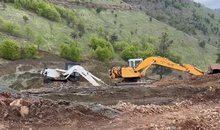
Collapse of massive chrome structure, still no trace of 29-year-old
2025-05-08 10:40:04
Vehicle bursts into flames in Paris Commune
2025-05-08 10:25:43
He gave land to his father and cousin, Basir Çollaku denounces the SP candidate
2025-05-08 10:16:16




Electoral Crimes/ BKH agents and Police conduct checks in Shkodra
2025-05-08 09:19:13
3 associates of Talo Çela arrested in Dubai
2025-05-08 09:02:28
Mouse in the owl's claws, Chris LaCivita responds directly to Rama
2025-05-08 08:45:40
Foreign exchange, how much foreign currencies are sold and bought today
2025-05-08 08:30:38
BIRN: Organized crime, the 'invisible party' of the Durrës elections
2025-05-08 08:26:35
Horoscope, what do the stars have in store for you today?
2025-05-08 08:08:15
Cloudy and rainy, what the weather is expected to be like throughout the day
2025-05-08 07:52:13
Posta e mëngjesit/ Me 2 rreshta: Çfarë pati rëndësi dje në Shqipëri
2025-05-08 07:40:16


Rama attacks Bardhi: Fier cannot be represented by the world's gas
2025-05-07 22:36:22


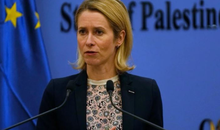
EU calls on Israel to lift humanitarian blockade in Gaza
2025-05-07 21:42:34
"Russia is "asking for a lot"! Vance calls for direct Moscow-Kiev talks
2025-05-07 21:20:16



